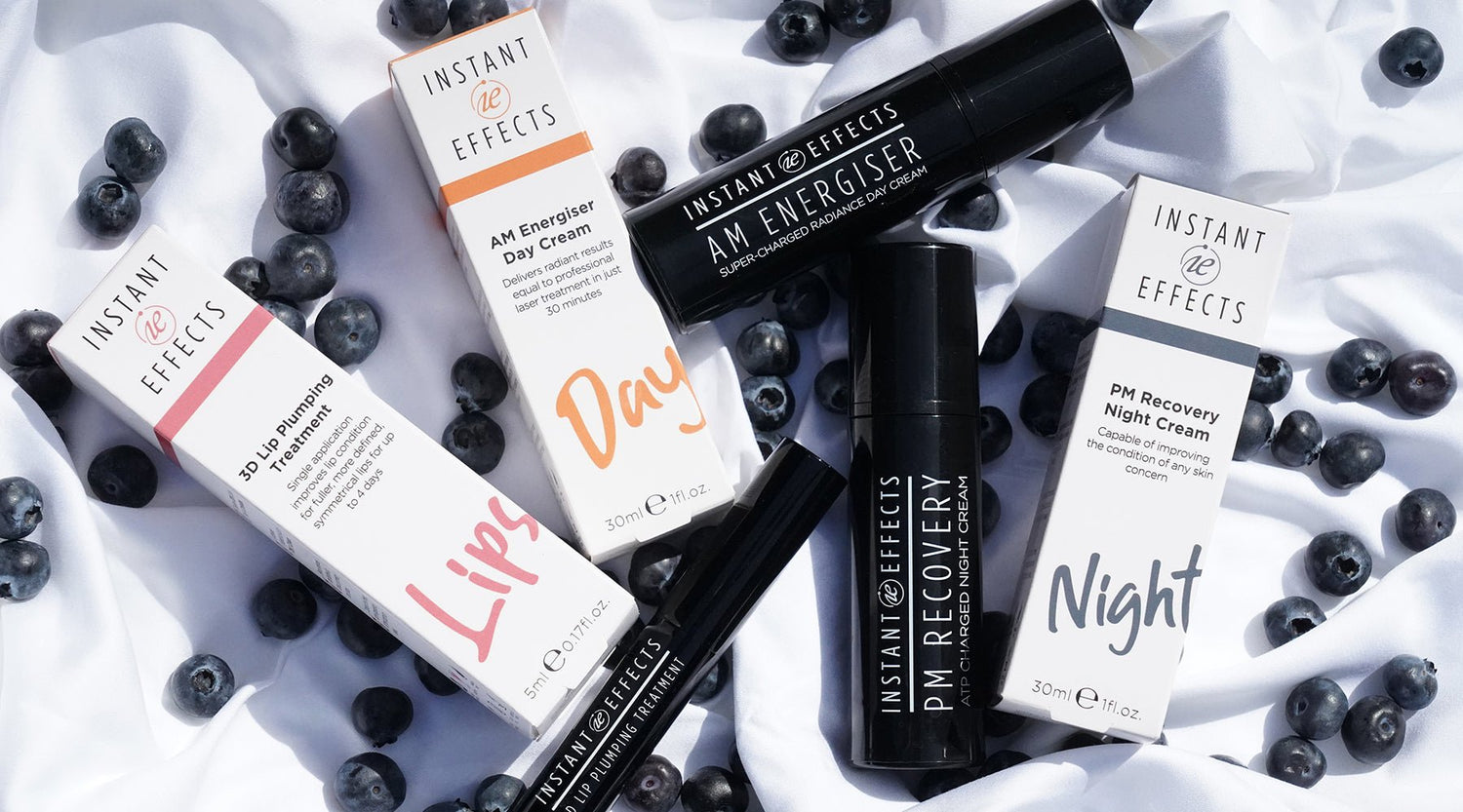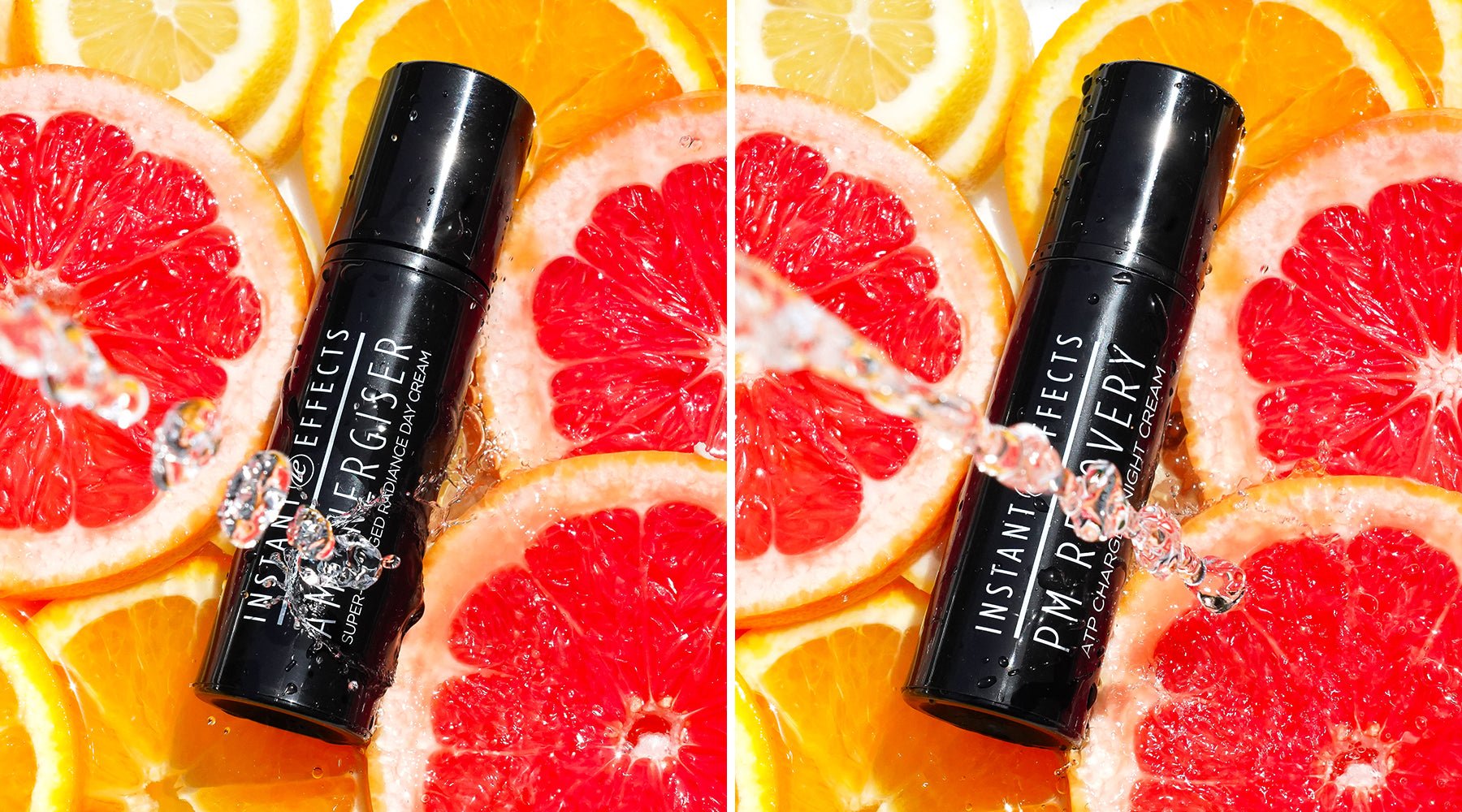Healthy skin comes from within. Using skincare products can tackle surface-level problems, but eating a well-balanced diet not only helps to give your skin health a boost, it also keeps you healthy at the same time. So to achieve healthy, radiant, glowing skin you need to consume a wide variety of nutritious foods and reduce your intake of unhealthy foods such as processed, oily-fried ones. These inorganic ingredients and overconsumption of sugar, alcohol, gluten and diary, trigger negative side effects and inflammation in the body.
These symptoms often show up as blemishes, fine wrinkles, hyperpigmentation and sagginess; all visible effects on the skin. The bottom line is whatever’s going on inside your gut will eventually show in your skin.
We are hoping that sharing our expert advice, we can help you to start embracing a healthy diet paired with a skincare regime full of finest, beneficial ingredients.
So what should you eat for a glowing complexion?
The best skin diet is the one that involves eating vegetables of different colours for every meal and ideally green juice every day! Avocados - one of the best vegetables to be introduced into your diet every day! We recommend eating a bit of avocado everyday as part of your salad, or perhaps adding half into your morning smoothie. It supplies the skin with healthy fats and phytonutrients.
Phytonutrients have antioxidant properties that help prevent damage to cells throughout the body. A Number of phytonutrients have been shown to reduce the risk of cancer, heart disease, stroke, Alzheimer’s and Parkinson’s disease.

The three most important colours in your diet - Red, yellow & green
Tomatoes are proven for helping reduce sun damage, they are high in in the antioxidant lycopene, which helps fight free radicals. These antioxidants are easily absorbed when the tomatoes have been cooked, as they release the antioxidants it from the plant cells. It’s also easier for your body to absorb these antioxidants if you eat tomatoes with some other healthy fats, like avocado or olive oil. Eating any tomato-based foods, such as sauce and tomato juice, for example, may help also to clear up acne. The amount of lycopene varies depending on the type of tomato and its ripeness. In general, the redder the tomato, the more lycopene it has. Yellow and green vegetables works similarly. The darker and brighter the colour, the more nutrients the food has. If you’re picking greens for a salad, choose darker greens like kale or spinach. Better yet, choose arugula or dandelion greens. These vegetables fight the free radicals that break down collagen over time, so they can help support the delicate, thin skin around your eyes.
Instead of grabbing an orange to get your dose of Vitamin C, why not try yellow bell peppers instead, as they contain much more Vitamin C than an orange, which makes them more beneficial for your skin. In a British Journal of Nutrition study*, researches found researches found that more than 700 Japanese women who ate additional yellow and green vegetables, were less likely to have wrinkles and crows feet. The study published in the American Journal of Clinical Nutrition found that volunteers who consumed four milligrams of Vitamin C ( is what you’d get in a single bite of yellow pepper ) daily for three years decreased the appearance of wrinkles by 11%.
 Walnuts contain a higher amount of Omega 3 and omega- 6 fatty acids then any other nuts, making them an extra healthy choice if you are looking for skin benefits. However it’s important to keep your nut intake to one handful ( ¼ cup ) a day. Eating anything in excess can lead to weight gain. Moreover, eating too many walnuts may cause certain adverse effects, including bloating, stomach pain and skin allergies in some individuals.
Walnuts contain a higher amount of Omega 3 and omega- 6 fatty acids then any other nuts, making them an extra healthy choice if you are looking for skin benefits. However it’s important to keep your nut intake to one handful ( ¼ cup ) a day. Eating anything in excess can lead to weight gain. Moreover, eating too many walnuts may cause certain adverse effects, including bloating, stomach pain and skin allergies in some individuals.
Sunflower seeds, along with nuts, are another healthy snack that can boost the health of your skin. These are particularly good choice as they contain plenty of Vitamin E, selenium, and zinc. Sunflower seed oil is rich in linoleic acid and essential fatty acids that your body needs to support healthy skin.
Carrots are rich in vitamin A, which fights against sunburns, damaged skin cells, and wrinkles. Vitamin A also adds a healthy, warm glow to your skin. You can also get Vitamin A by consuming provitamin A through fruits, vegetables, and other plant- based products. Your body then converts beta-carotene into vitamin A to protect your skin from the sun.
Soybeans contain isoflavones that block estrogen in your body to help reduce the appearance of wrinkles and improve the elasticity of your skin. Postmenopausal women can also benefit from isoflavones as they prevent dry skin and increase collagen production to improve skin’s overall texture. They also protect your skin from UV radiation, which can prevent some types of skin cancers. You can also find isoflavones in chickpeas, pistachios, and peanuts.
Make sure you get enough omega-3 and omega-6 fats. These are essential fatty acids which mean they cannot be made in the body and must be obtained through the diet. You will find omega-3s in oily fish and plant sources such as linseed and their oil, chia seeds, walnuts and rapeseed oil. Omega-3 fats encourage the body to produce anti-inflammatory compounds, which may help with inflammatory skin conditions such as eczema and psoriasis.

Be sure to maintain a healthy diet, as well as:
1. Try to reduce sugar as much as possible. Replace refined surgery foods with nutrient-dense foods, like fruit, vegetables and healthy sources of Omega 3.
Sugar quickly gets into your bloodstream, making your insulin levels spike, which can aggravate acne, wrinkles and rashes. If you need a quick snack in the middle of the day or after a workout, it’s better to have a handful of almonds or a fruit. You’ll be eating better for your skin and you’ll feel more satisfied.
2. Don’t forget to stay hydrated, water plays a big part in the appearance of your skin. Water ensures your skin has enough moisture, which reduces the appearance of fine lines and wrinkles. It also helps with nutrient absorption, removal of toxins and improves blood circulation. Some fruit and vegetables, such as watermelon, courgette and cucumber also contribute fluids - the added benefit to these foods is that the minerals they contain will increase the rate you hydrate your body and skin.
3. Don’t crash diet, repeatedly losing and regaining weight can take its toll on your skin, causing sagging, wrinkles and stretch marks. Crash diets are often short in essential vitamins and minerals too. Over long periods of time this type of dieting will reflect on your skin. It’s always best to eat a healthy, well balanced diet. If you are considering trying a weight loss plan, make sure you have all the facts first.
It’s important to remember that once you actually make changes to your diet, don’t expect an overnight miracle. It takes six weeks for new skin to emerge up to surface, so the visible benefits from dietary changes will take just as long.

*Studies ref: https://academic.oup.com/ajcn/article/86/4/1225/4649573



